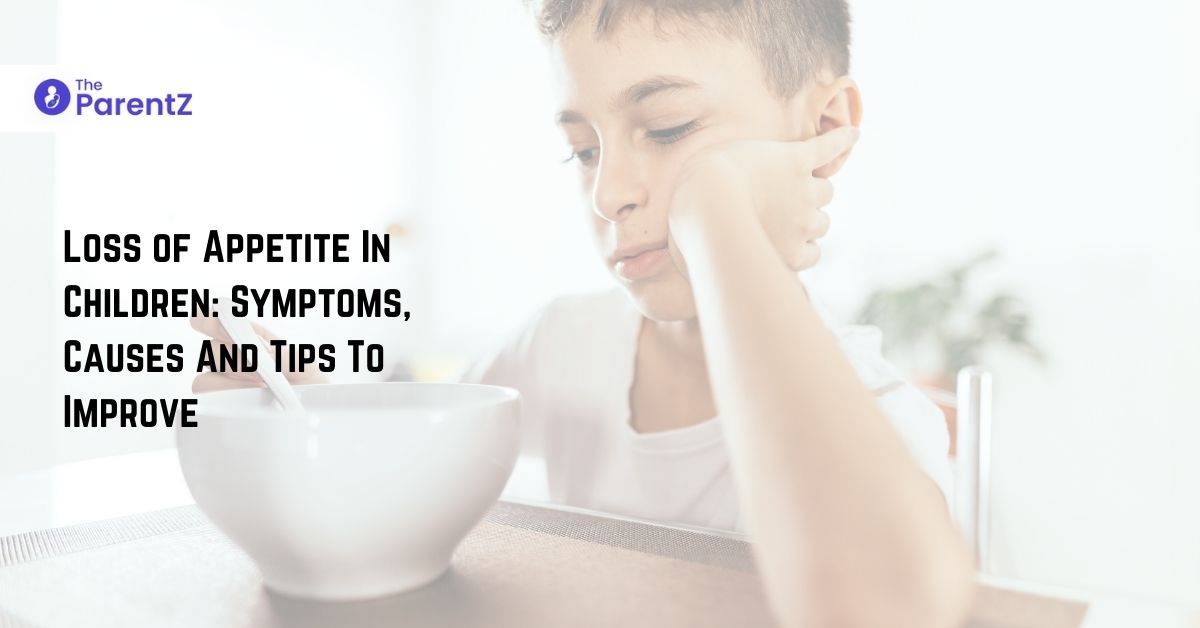It is relatively common among young children to lose their appetite, which makes more of a reason for their parents to worry. In some cases, it might be a concern, while for the other, it may not. Parenting is Not Easy but Being a Good Parent is Easier Than You Think. Below mentioned causes and preventive tips from The ParentZ can assist you with such a dilemma.
Nine Major Causes for Loss of Appetite in Children
1- Constipation: One of the primary reason children loses their appetite is due to constipation. Solving the root of the problem can help your child to regain appetite.
2- Anemia: Anemia is yet another reason for the loss of appetite in children. Anemic children tend to be lazy and tired, which directly affects their appetite.
3- Medication: If your child is undergoing medication, there is a far better chance that they will lose some appetite. In this case, it is always advised to wait for the medication to complete.
4- Depression: What applies to adults can also be used to children too. When your child is depressed, they always tend to lose their appetite.
5- Stress: Stress from the school or peer can also result in a weak appetite for children.
6- Sickness: While your child is sick, they might develop a lesser appetite. In such a case, make sure to fight the disease, not the appetite.
7- Slower Growth: Slower growth rate leads to lesser consumption of food.
8- Same Food every day: Serving the same food every day can also result in a loss of appetite.
9- Intestinal Worms: Several times, intestinal worms may appear in the digestive system of the children resulting in a lesser appetite.
The Seven Prevention Tips Before They Lose their Appetite
1- Fun and Filling Breakfast: Why is it that the majority of the cereal companies come up with bizarre names for their products? That’s because it adds a little bit of fun while having breakfast. Now, what happens at the macro is also applicable for your child too.
2- Serving Water Before the Meal: By taking water before an hour for every meal can be beneficial as it keeps the organs ready to process the food.
3- Letting them Play: Instead of making your child a prisoner at their own home, it is far better to let them play and go outside the house. By performing physical activities, the metabolism increases resulting in a better appetite.
4- Better Cooling Environment: We always feel hungry during winter as compared to that of summer. By keeping your house cool enough can also help your child towards a better appetite.
5- Start with a Lemon Juice: Lemon juice is a great way to activate the digestive systems. Serving a glass of lemon juice can always help your child to regain the appetite they have lost.
6- Peanuts for Snacks: Peanuts are some of the scientifically proven food items that can be used to increases the appetite for children. You can always use them for snacks so that your child can have a good dinner before they head back to bed.
7- Serving the Favourite Meal: One of the pro parenting tips never picks a fight with your child regarding what they want to eat. Sometimes it’s better to serve them what they want.
Conclusion: If you ever encounter loss of appetite in children, make sure that you take the above mention preventive measures. These can always help you in the long run to regain their appetite.








Be the first one to comment on this story.